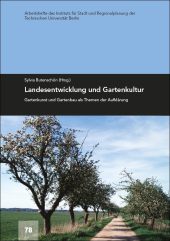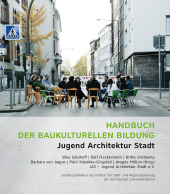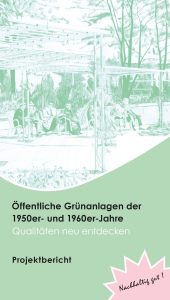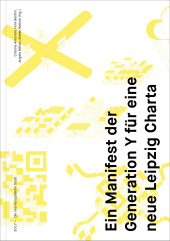Stadtplanung Heute – Stadtplanung Morgen
Eine Berufsfeldanalyse
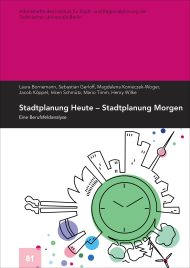
Format: 17,0 x 24,0 cm
Publishing year: 2017
In the discipline of urban and spatial planning, there has been a constant discussion ever since the relevant independent degree and education programmes came to exist, concerning both spatial planning itself as well as the stakeholders active here and their respective roles for cities and rural areas. In addition, there is current discussion about the requirements of the job world regarding skills and abilities of graduates, aimed at the design of the universal education of planners.
The self-determined research project “Urban Planning Today – urban Planning Tomorrow. An analysis of the professional field” wishes to contribute to this discussion.
In doing so, this study stands out from the debate so far because it includes the voice of professional experts, the extensive research design and the breadth of the research stands out. The current research report involves the analysis of specialist literature on the terms urban and spatial planning as well as the planners, the chamber of architects requirements for urban planners, job descriptions for different institutions, a analysis of various journals as well as the analysis of the curricula for the eleven consequent planning degree programmes in the German-speaking part of the world.
As an essential part of the analysis, 16 experts from various urban planning branches contributed their knowledge and experience in guided interviews. Furthermore, the team conducted a nationwide online-survey with over 1.500 entries. The participants were mainly members of the public authorities for municipalities, counties and states as well as employees of private planning companies and research institutes and also associations and freelancers.
The interviews as well as the 50 questions of the survey focussed on current and future tasks as well as challenges, roles, degrees and qualifications of existing employees and entry-level career opportunities. Special attention was paid to the stated requirements for future graduates and their professional and methodological skills.
The analysis proved that urban and spatial planners work as interdisciplinary generalists that are able to specialize in their study and their profession – depending on the desired field of work. Beyond that the analysis provides sturdy evidence as well as reasonable doubts for certain stereotypes and widespread assumptions.
The analysis also contains profiles about the environment and tasks of the different branches as well as references to entry wages and job vacancies, which might be of particular interest for students and graduates.
